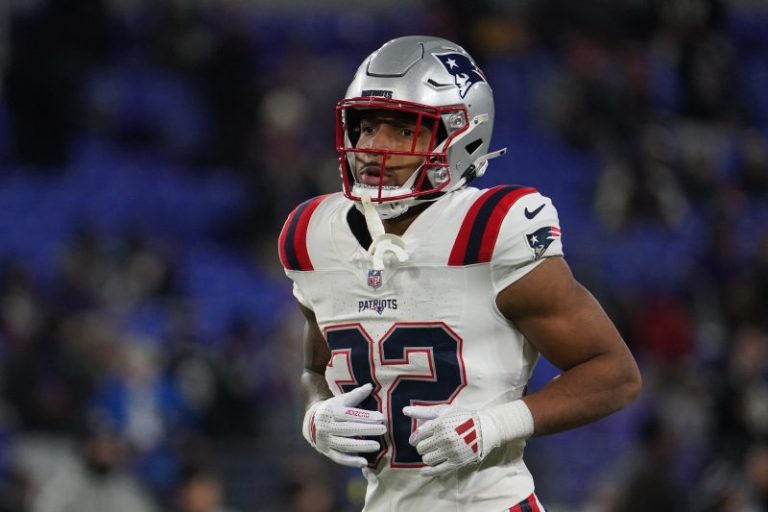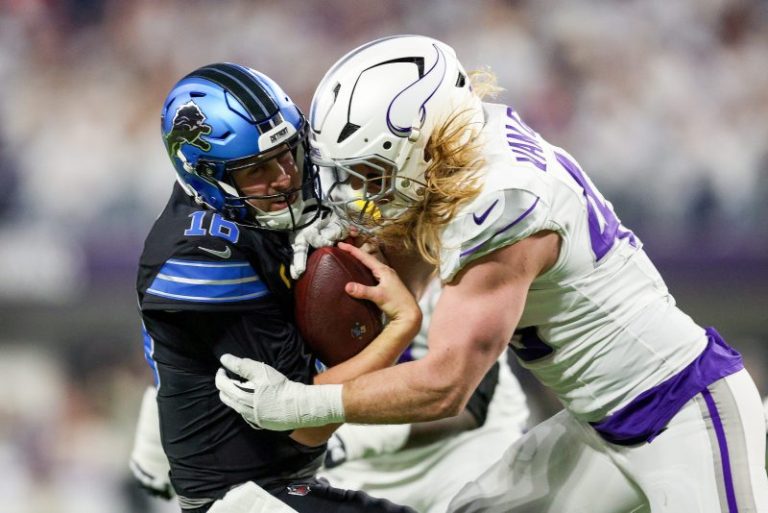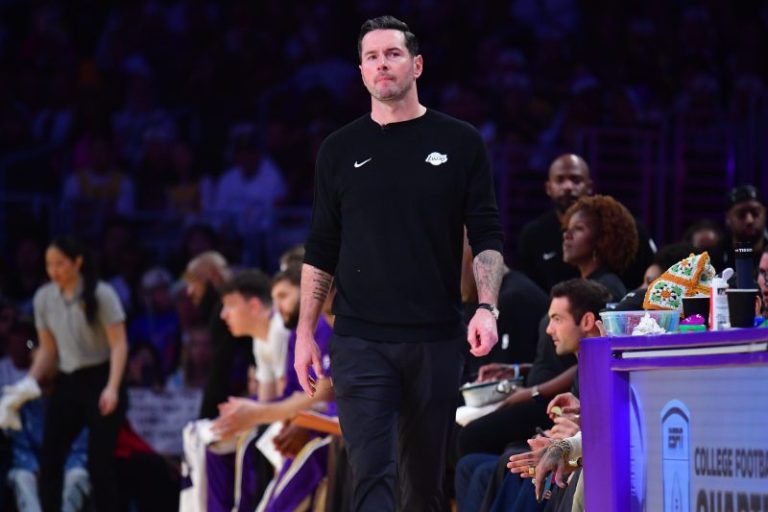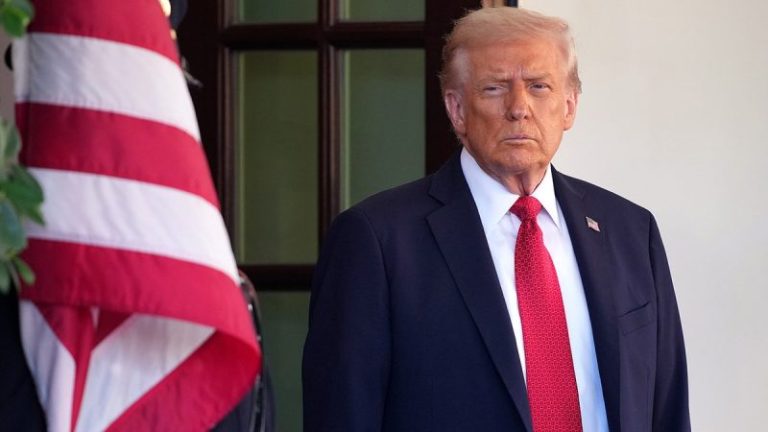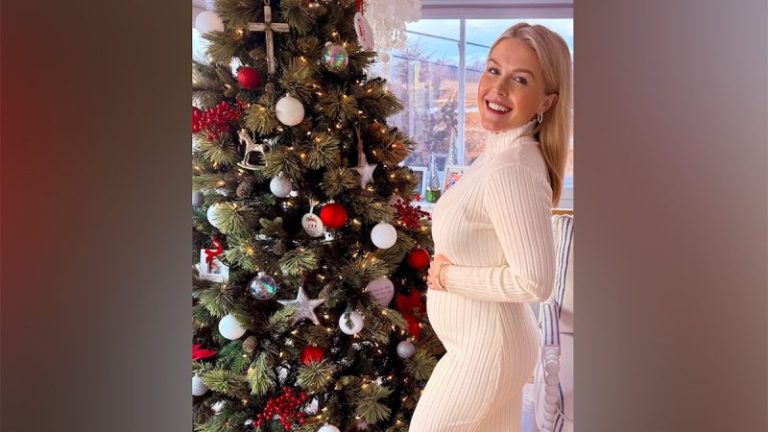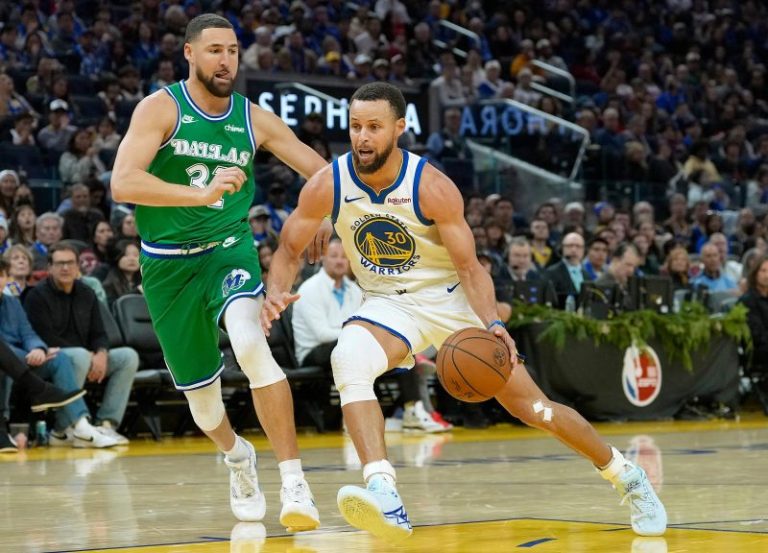SAN FRANCISCO — Stephen Curry starred for the Warriors on Christmas once again, though Mavericks rookie Cooper Flagg made a strong case that he should be included in future NBA holiday extravaganzas.
The Golden State Warriors (16-15) withstood a late push from the Dallas Mavericks, walking away with a 126-116 win, Dec. 25 at the Chase Center in San Francisco.
In his 12th Christmas game, Curry notched a team-high 23 points, including the 26,000th point of his storied career.
‘I didn’t know going into it which is great,’ Curry told USA TODAY Sports. ‘Those things take care of themselves the more you play, and the more opportunity you get out there. It is a special milestone for sure, especially just I think 22 guys in the history of the league. You look up and you know there’s some other active players still doing it, still climbing that ladder. I’m happy to be a apart of that chase to see how I can get up there.’
While Curry struggled from deep, hitting just 2 of 10 3-pointers, he made all nine of his free throw attempts.
His former teammate and fellow Splash Brother, Klay Thompson, had a quiet night in his return to the Bay, scoring seven points.
‘What I think about most, probably good times,’ Thompson said on his return to the Chase Center. ‘Record-breaking nights, championships, all that good stuff.’
But once the ball is tossed up, all the kumbaya gestures go out the window and its back to competition.
‘They are an opponent,’ Thompson said to reporters. ‘I mean, why would I look at any other team other than the Mavericks like that? It’s just the nature of the business.’
Both Curry and head coach Steve Kerr acknowledged that it’s not easy seeing Thompson on the opposite bench but are appreciative of the memories they created between Oakland and San Francisco.
Curry, who’s a sneaker free agent, wore Thompson’s signature shoes during the game.
‘Last year when we played them he usually warmed up around the same time so I kind of knew he was going to be out there and had a quick moment with him at halfcourt, then kind of kept it moving,’ Curry told reporters after the game.
It was a valiant team effort from the Warriors as seven players scored in double-digits. The team looked fluid offensively, and they shared the ball well, combining for 33 assists. Forward Jimmy Butler had a team-high nine assists to lead Golden State.
‘Jimmy loves to pass. Jimmy would prefer to get an assist than a basket,’ Kerr told USA TODAY Sports. ‘He loves that kind of game. … This has been our identity over the years. I feel really good about the way we’re playing as long as were making simple decisions and the simple passes so we get plenty of attempts.’
Butler also chipped in 14 points and nine rebounds.
‘It was clicking tonight,’ Butler said. ‘We were moving the ball at an incredible pace, finding guys. Sometimes it may look a little bit too unselfish because we do have layups, myself included. We all love to see everybody else shine so it’s a good problem to have.’
An unsung hero from the game was De’Anthony Melton, who suited up in his seventh game of the season after battling injuries.
‘I’m just (trying to) keep working through it,’ Melton said. ‘I think definitely my conditioning has gotten better. Before, my first five minutes of the game, I feel like I’m ready to pass out. But now, I feel a lot better, I feel I like I can play a lot longer. That’s what I’m happy about, and I’m just trying to keep working.’
Melton tallied a season-high 16 points off the bench and provided a spark for the Warriors whenever he was on the floor. He ended the game plus-minus of +16.
‘Just going out there, being aggressive,’ he said. ‘I’ve kinda said that from the jump, and I think that’s kind of what the team wants from me too. When you got everybody being aggressive, I mean we got like 12, 13 dudes that can go out there and play.’
Nobody was happier for Melton and his season-high tonight than Butler.
‘It’s about time. What was his first one, the one in the corner? We like that though,’ Butler said. ‘We’re happy for him that he’s back hooping, confident. I always say we got so many guys who can make shots, I’ve seen him do it time and time again so good for him.’
Cooper Flagg shines in first NBA Christmas game
Cooper Flagg, the No. 1 overall pick in the 2025 NBA Draft, scored a game-high 27 points and added six rebounds and five assists to lead the Mavericks (12-20).
Flagg reflected on the loss and said ‘defending and rebounding’ were some of the factors into the outcome of the game.
‘We got to do a better job just getting stops,’ he said. ‘And then that turned into our offense.’
Flagg played a team high 36 minutes and also led the Mavericks in assists.
‘He was great. He was doing everything,’ Kidd said about his rookie forward. ‘Off the pick-and-roll, he’s screening, he’s passing, he’s doing everything that we’ve asked him to do. He was maybe a little frustrated that he missed some free throws, but overall he’s playing at a very high level.’
Curry isn’t a stranger to Flagg’s ability, whether it’s seeing him at his own camp, the USA Select team or as a freshman at Duke. Curry knows the league’s future is in good hands with Flagg.
‘It’s not a surprise what he’s been doing, why he’s a No. 1 pick, what he did at Duke,’ Curry told USA TODAY Sports. ‘The future’s bright. He plays well beyond his years and just his basketball IQ, you can tell. That’s going to be a journey you want to stay locked in on. He’s going to be around for a long time.’
Curry on significance of playing on Christmas Day
With his 12th NBA Christmas Day game in the books, Curry, happy to be a part of history, looked forward to spending the rest of the holiday evening with his family.
‘That’s special because only 10 teams get that opportunity and especially at home. It’s a great honor, the history of this day, in the history of the league. So I don’t ever take it for granted,’ Curry told USA TODAY Sports. ‘It’s a different energy all around the arena. To start it at home with the family, very cool slot where you get a little time in the evening with family so I’m looking forward to getting home. Always fun, especially when you get a win.’
Warriors vs. Mavericks highlights
Warriors vs Mavericks final player stats
Warriors scoring leaders
Stephen Curry 23 points, De’Anthony Melton 16 points, Jimmy Butler 14 points, Al Horford 14 points
Warriors rebound leaders
Jimmy Butler 9, Brandin Podziemski 8
Mavericks scoring leaders
Cooper Flagg 27 points, Brandon Williams 26 points, P.J. Washington 14 points, Naji Marshall 14 points
Mavericks rebound leaders
P.J. Washington 10, Cooper Flagg 6, Max Christie 6
Warriors vs Mavericks final team stats
FG%: Mavericks 54%, Warriors 44%
3PT%: Mavericks 29%, Warriors 28%
FT%: Warriors 92%, Mavericks 67%
Rebounds: Warriors 49, Mavericks 41
Assists: Warriors 33, Mavericks 18
Turnovers: Warriors 11, Mavericks 11
Steals: Warriors 9, Mavericks 5
Blocks: Mavericks 5, Warriors 4
Final: Warriors 126, Mavericks 116
The Golden State Warriors (16-15) won their third consecutive game to get back over .500. The Dallas Mavericks fall to (12-19).
Warriors continue team effort in fourth
As the Mavericks looked to lodge a comeback, the Warriors kept their foot on the gas.
When Dallas brought the game close within striking distance at 104-99 with under seven minutes in the game, Golden State kept pulling away with timely stops, getting easy buckets on the other end whether on open shots or getting fouled and hitting free throws.
Dallas had opportunities to climb back, but the Mavs would constantly miss free throws. As a team they shot 66% from the charity stripe.
Warriors’ guard Steph Curry hit a dagger three from 26-feet to extend their lead to 115-104 with 3:44 left in the game. The Warriors continued to break away through the rest of the game. Curry ended the game with a team-high 23 points.
End Q3: Warriors 100, Mavericks 89
The Warriors bench continued to show up. Key contributions and hustle plays from De’Anthony Melton and Will Richard have helped Golden State maintain a double-digit lead heading into the fourth quarter.
Through three quarters, Melton has been a +20, putting his fingerprints on the game. Jimmy Butler has found teammates all game, dishing out nine assists. He also added 12 points.
Curry reaches milestone, surpasses 26,000 points
Steph Curry scored his 26,000th point on a made layup after a pass from Jimmy Butler with 11:29 left in the third quarter.
Curry is No. 22 all-time on the NBA scoring list behind basketball Hall of Famer Kevin Garnett (26,071).
Halftime stats and notes
The Warriors were led by Moses Moody and Al Horford with 12 points, each. Steph Curry had 10 points in the first half, while Jimmy Butler and Brandin Podziemski chipped in with eight and seven points, respectively.
As a team Golden State has shared the rock with a total of 18 assists.
Dallas was led by Cooper Flagg and Naji Marshall, who socred 12 points apiece in the first half. Brandon Williams and Max Christie combined for 15 points in the first half.
End Q2: Warriors 71, Mavericks 58
Dallas opened the quarter on an 8-0 run before it was ended by a Draymond Green corner three with under 9 minutes to go.
The Warriors turned up their defensive intensity and increased their offensive tempo to extend their lead. They received a huge boost from the second group as they scored 32 bench points in the first half.
Golden State has been attacking the offensive glass for second chance opportunities, and they’ve outscored the Mavericks 14-2 in that column.
Rookie Cooper Flagg came alive in the second quarter for Dallas, scoring 10 of his 12 in the period.
Steph Curry made a left-hand layup at the end of the quarter to give him 10 points in the first half. He’s two points shy of reaching 26,000 total career points.
Anthony Davis injury vs. Warriors on Christmas
Mavericks center Anthony Davis went back to the locker room with an apparent injury early in the second quarter with about 8:50 remaining. He was seen on the bench stretching his legs and groin area before heading to the tunnel.
The good news is that he walked on his own. The bad news is he did not start the second half in the game. He did not return to the game with ‘right groin spasms’.
He ended the night three points, three rebounds, two blocks and a steal in just under 11 minutes.
End Q1: Warriors 40, Mavericks 28
The Warriors ended the first quarter with a 40-28 lead behind 12 points from center Al Horford, who was a perfect 4-for-4 shooting from deep to lead Golden State after 12 minutes.
Horford checked into the game for the first time since Dec. 4. The 39-year-old signed a multiyear deal with the Warriors before the season started in September.
Klay Thompson entered the game for the Mavericks from the bench, and the former Warrior received a loud cheer from the Bay Area crowd at Chase Center.
What time is Warriors vs. Mavericks Christmas game today?
The Golden State Warriors will host the Dallas Mavericks in one of five NBA on Christmas games on Thursday, Dec. 25 at 5 p.m. ET (2 p.m. local). The game will take place at the Chase Center in San Francisco.
Watch NBA Christmas games with Fubo
How to watch Warriors vs. Mavericks NBA Christmas game: TV, live streaming
The game between the Golden State Warriors and Dallas Mavericks will be broadcast nationally on ABC and ESPN and can be live streamed on Fubo.
Date: Dec. 25, 2025
Time: 5 p.m. ET (2 p.m. local)
Location: Chase Center (San Francisco)
TV: ABC, ESPN
Streaming: ESPN Unlimited, Fubo
Mavericks vs. Warriors odds
The Golden State Warriors are favored against the Dallas Mavericks according to DraftKings odds as of afternoon of Dec. 25.
Line: Warriors -8.5
Over/under: 230.5
Mavericks vs. Warriors predictions
USA TODAY NBA experts pick the winner of today’s game:
Scooby Axson: Mavericks 115, Warriors 110
Mark Giannotto: Mavericks 120, Warriors 118
Jon Hoefling: Warriors 125, Mavericks 123
Lorenzo Reyes: Mavericks 106, Warriors 98
James Williams: Warriors 115, Mavericks 113
Kerr on current state of Warriors, competitive spirit
As the Warriors look within themselves after 30 games of basketball and a 15-15 record, head coach Steve Kerr isn’t proud of the way the team has played to this point but said he believes their best basketball is yet to come.
‘We’re heading in the right direction,’ Kerr told USA TODAY Sports. ‘Obviously we’re disappointed in our record. We’re 6-10 in clutch games. This league is really about winning close games especially where we are right now. I think we’re a good team but I think we have the potential to be an excellent team.’
Kerr eluded to this core in 2025-26 being different from the teams in the past that have won championships, most recently in 2022. In order for this team to win down the stretch and make a postseason run, Kerr said the team has to find ways to win close games.
‘We are in a spot now where we’re going to play close game after close game and we’ve got to finish the game. We just haven’t’ done that,’ he said. ‘A little bit of bad luck but also plenty of execution issues, coaching things that I regret so you throw all that into the mix, we’re 15-15 for a reason.’
Klay Thompson reunion in the Bay
After spending the first 11 years of his career in the San Francisco Bay Area, it’s still pretty weird for Thompson to return to the place where he’s won four championships, as the opposition.
Thompson was well-received by the fans in San Francisco when he took the floor before the game. Thompson and Curry, the duo known as the ‘Splash Brothers’ shared a handshake and hug at halfcourt during the pregame shootaround.
Dallas Mavericks head coach Jason Kidd understands the emotion and hopes to get the version of Thompson that became highly regarded as one of the greatest shooters in NBA history.
‘I think that last one here was an emotional one for him. And so for this one, it’s still gonna be emotional because he’s had a lot of great memories here,’ Kidd said. ‘I think he took the boat out, and so hopefully the basket’s big for him this afternoon and he makes every shot.’
He added: ‘I think for him, it’s just the energy, the thought process, and everything that he’s done here, and getting to basketball. And he’s very comfortable when it comes to basketball. So we just need him to be Klay for us tonight.’
Thompson has relished in his role as a reserve, a key contributor for Dallas off the bench. In his last game against the New Orleans Pelicans, he scored 20 points. He missed the previous two games due to illness.
‘I think for Klay, coming off the bench has been great,’ Kidd said. ‘He’s playing his role at a very high level for us. Being able to anchor that second group, being able to get shots for him, and then just his voice, not just on the bench or in the locker room, but also on the floor. For our young players, he’s been great.’
This post appeared first on USA TODAY

